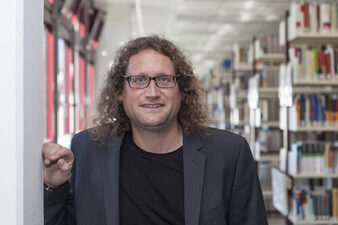How does social work function in countries of the Global South? And what can prospective social workers from Germany learn from this? Prof. Dr. Michael Boecker from the Faculty of Applied Social Studies at Dortmund University of Applied Sciences spent ten days in South Africa with students. He is convinced that international exchange and the cultural context are hugely important for their future work.
The workshop with students from Fachhochschule Dortmund and the University of KwaZulu-Natal in South Africa had been repeatedly postponed for two years due to coronavirus. At the end of July 2022, 18 prospective social workers were finally able to set off. The workshop was part of an internationalization project funded by the German Academic Exchange Service(DAAD(Opens in a new tab) ) to strengthen the links between academia and practice.
Challenges of globalization
"Our seminar is about the challenges of global transformation for social work and the consequences of globalization for countries in the Global South," says Prof. Boecker. Social work needs to become more international and think things through together, especially when it comes to refugees and migration. "In social work in Germany, for example, we are dealing with target groups that come from sub-Africa," says the social scientist. It is important to understand the cultural background and reality of people's lives. "In this context, exchange programs are a great benefit for our students," emphasizes the professor.
Visit to social projects
In addition to academic events at the University of KwaZulu-Natal, the visits to the social projects were particularly enriching for the Dortmund students. For example, the day spent together with the children and employees of the Don Bosco orphanage on an adventure farm. The orphanage belongs to the development aid association Don Bosco e.V., which was co-founded by Prof. Boecker. The students visited a workshop for people with disabilities and were active in rural areas as well as in one of the townships in the South African city of Durban.
Last year, doctoral students from the University of KwaZulu-Natal were guests at Fachhochschule Dortmund. The exchange has also resulted in several social projects around Corona in South Africa. Michael Boecker is therefore keen to continue the cooperation and is working to continue the funding project. "It would be important if we could continue to offer students these special exchange opportunities in the future," says the UAS professor.
Prof. Michael Boecker, Dr.
Appointments can be arranged at short notice by e-mail

